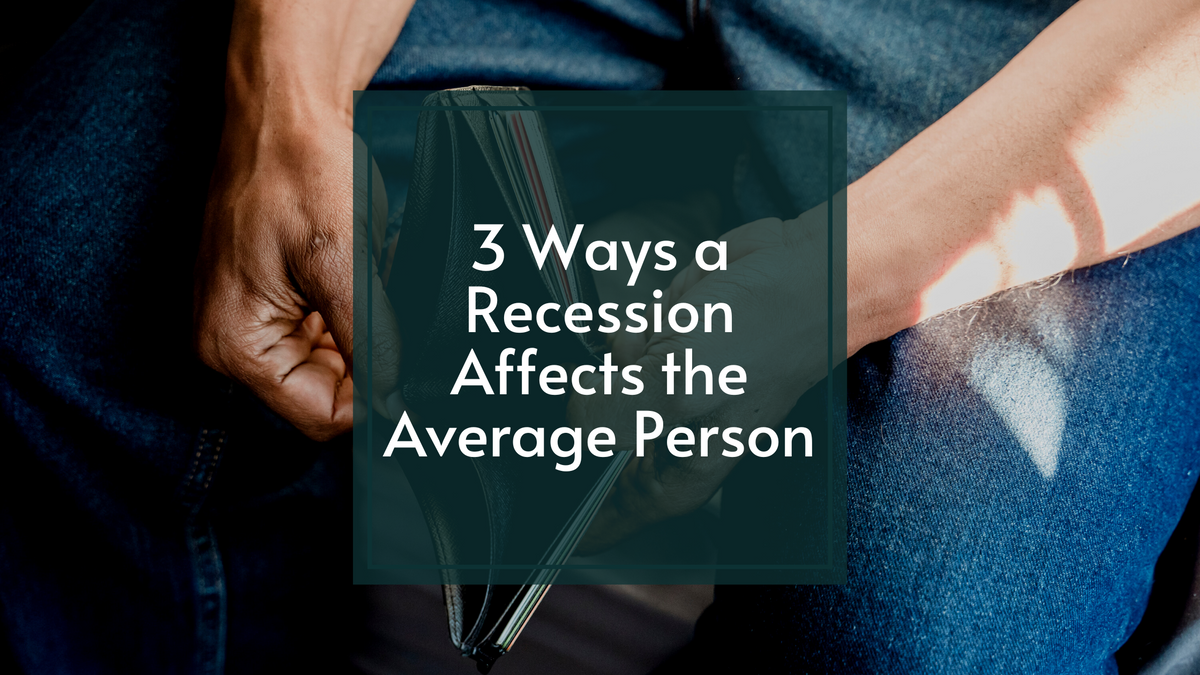3 Ways a Recession Affects the Average Person
In a recent interview, the Bank of England (BoE) governor predicted the UK would fall into a recession by the end of 2022. You might think the fancy recession talk has nothing to do with you, but it impacts the average person.

In a recent interview, the Bank of England (BoE) governor predicted the UK would fall into a recession by the end of 2022. You might think the fancy recession talk has nothing to do with you, but it impacts the average person.
You’ve probably noticed that commodity prices have risen exponentially in the past few months. That has led to a current inflation rate of 10.1%, the highest it’s ever been since 1982.
Accommodating the unexpectedly high bills is difficult as there’s no commensurate increase in your pay cheque. The BoE has had to hike bank interest rates to lower the inflation rate to 2%, which might drive the economy into a recession. Here are three ways the recession will affect you directly.
1. You’ll find it harder to find a new job
A recession typically leads to employment scarcity. While the UK is currently experiencing a normal unemployment rate of 3.8%, that figure is likely to climb higher due to minimal demand for goods and services and declining profits, forcing businesses to cut costs by laying off workers.
Additionally, companies will put the brakes on hiring staff. In short, the chances of losing your job during a recession are higher, and it will be an uphill task trying to secure one, especially if you work in an industry that does not provide basic necessities, such as:
- Tourism
- Hospitality
- Leisure
The safest jobs lie in sectors people can’t do without, like medical care, schools, and the food industry.

2. Your investments may become volatile
Investments thrive when a lot of people are spending. A recession stifles this as inflation will depress your spending ability, and the job cuts worsen the spending power. That kicks off a vicious cycle felt throughout the investment market.
At the slightest hint of a depressed market, investors will either pull out or shy away from investing, creating a volatile market. While not all companies perform the same during a recession, the stock market typically witnesses its most volatile period during this time.
While there are merits to investing during a recession, it may be a long time before you recover the investment and certainly prepare for the wild, up-and-down market movements.
3. Your spending habits will change
The Consumer Prices Index rose to 10.1% in July 2022, a 40-year high. That was principally due to rising food prices, gas, electricity, transport, and housing costs.
One in every five households in the UK has an average shortfall of £60 every week, an 18% drop in average household disposable income, leading to negative disposable income. These are the conditions you will probably face in case of a recession, possibly worse.
Since your wallet won’t keep up with the harsh economic environment, you’ll have no choice but to change your spending habits, cutting back on non-essentials such as leisure activities and dining out.

The old tricks for surviving a recession don’t cut it anymore. Sign up for a FREE Wealth Coaching Session to equip yourself with the best tools to thrive during a recession.
